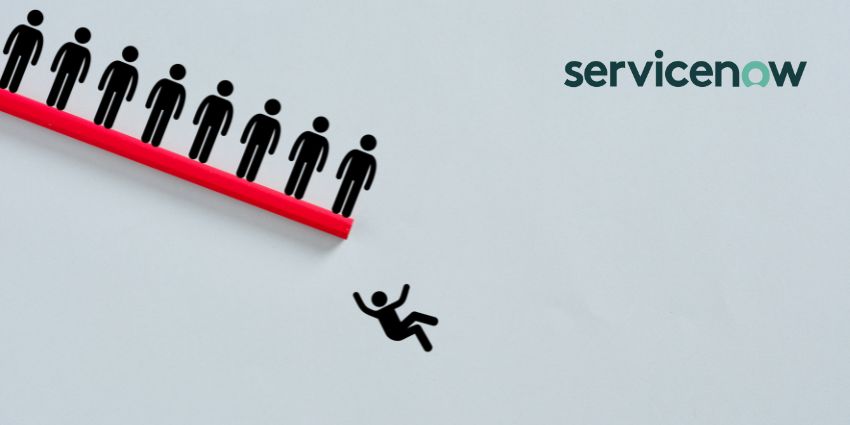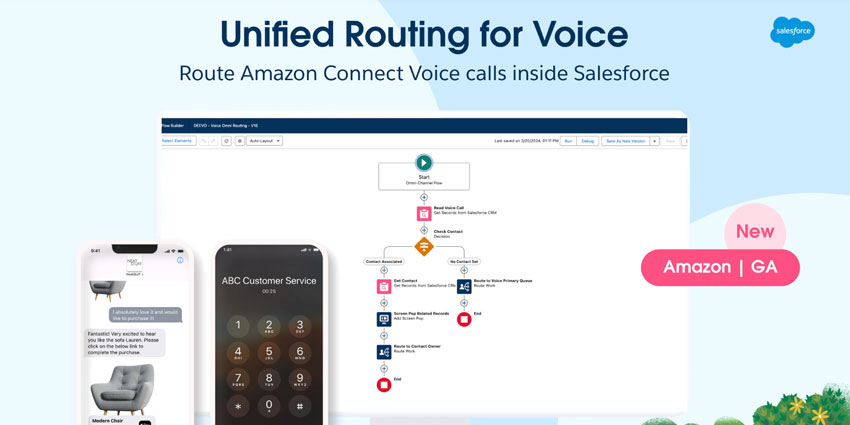Last week, Salesforce announced a fully autonomous AI worker for customer service: the Einstein Service Agent.
The autonomous agent leverages generative AI (GenAI) to handle digital customer queries of varying complexities without the need to pre-program responses.
To do so, contact centers must connect the Service Agent to their trusted knowledge bases, data stores, and relevant external sources.
Built on the Einstein 1 Platform, the solution is currently in pilot, but Salesforce has teased that it will reach general availability before the year’s end.
During the latest episode of CX Today’s Big News Show, Rebecca Wetteman, CEO & Principal Analyst at Valoir, underlined the move’s significance.
“This marks the shift from humans in the loop to humans at the helm,” she said. “Salesforce is signaling its confidence in its AI capabilities by making these agents autonomous.”
That confidence is relatively newfound. After all, only six months ago, Marc Benioff, CEO of Salesforce, told Bloomberg:
With the current technology, it’s all about augmentation. We can do a lot… [so] long as the human remains in the loop because, as we all know, these things (LLMs) lie pretty bad.
Since then, many high-profile autonomous AI failures have hit the headlines, including the Air Canada, DPD, and New York City Council incidents.
So, while Salesforce may now appear confident in going all-in on GenAI by announcing autonomous agents, most customers will remain cautious and require additional assurances that the technology is reliable before deploying it.
As such, Salesforce must further educate the market about why this shift makes sense now, which it may aim to do at its upcoming Dreamforce event.
With Salesforce, Autonomous AI Failures Are Less Likely
As the incidents at Air Canada, DPD, and New York City Council remind us, autonomous AI requires a sophisticated knowledge management strategy.
Indeed, the quality of Salesforce’s customers’ knowledge and data stores will most impact the success of autonomous agents.
Also, the New York City incident exemplifies the need for a fallback, so when the knowledge isn’t there, the virtual agent doesn’t make it up but transfers the customer to a human agent.
Thankfully, the Einstein Service Agent offers this capability, making similar AI failures less likely. As Liz Miller, VP & Principal Analyst at Constellation Research, stated:
The autonomous nature of these bots isn’t just about handling conversations but also about recognizing when to transfer the customer to a human agent.
That’s critical, as it also demonstrates Salesforce’s commitment to integrating AI in a supportive, rather than fully autonomous, role within contact centers.
Additionally, Salesforce can flaunt this AI reasoning – alongside its natural responses and investment in guardrails, templates, and low-code tools to ease deployments – as a core differentiator.
Nevertheless, those businesses that put the hours into building robust knowledge sets – perhaps leveraging Salesforce Unified Knowledge – will have most success with the Einstein Service Agent.
Autonomous Customer Service Is (Probably) Just the Start for Salesforce
The fact that Salesforce built its Service Agent on Einstein 1 – not Service Cloud specifically – suggests this is just the start of its autonomous agent push.
After all, the Einstein 1 platform encompasses all the tech giant’s CRM apps. Therefore, it seems likely that Salesforce will release Einstein Sales, Marketing, and Commerce Agents in the future.
Yet, more so than in those functions, virtual agents are already commonplace within customer service, with many business leaders viewing contact centers as cost centers.
As such, Simon Harrison, Founder & CEO of Actionary, isn’t surprised that Salesforce started its autonomous AI push in the contact center. Nevertheless, he cautioned the CRM giant on the move, stating:
The contact center is where the risks of automation—such as providing incorrect information—are most apparent.
However, as already hinted, many companies still view sales and marketing as more critical areas for revenue generation. Consequently, they are likely to consider – rightly or wrongly – the introduction of fully autonomous AI agents in customer service first as the most cautious approach.
If customers embrace that approach, they’ll likely see more value in Einstein 1, which – in the coming years – is likely to have autonomous AI agents swarming the platform.
In doing so, they may leap between the CRM apps and perform cross-functional tasks.
The Lingering Question
One question lingers a week after the Einstein Service Agent announcement: will contact center leaders feel comfortable giving AI full autonomy to handle contacts without substantial pre-programming?
Currently, most would likely prefer to keep a human-in-the-loop with GenAI use cases and build confidence across the business in its application.
Yet, even for those ready to dive in, there’s still much more to consider. For instance, how can we ensure all knowledge base content is up-to-date? And how will the Einstein Service Agent impact our agent performance metrics?
The good news is that users of Salesforce’s existing Copilot and GenAI capabilities have a head start with the solution building on these. As such, some users may simply expand their existing strategies.
Nevertheless, it’s difficult for prospective buyers to start planning ahead before Salesforce releases its pricing strategy, which seems likely to come during September’s Dreamforce event.








